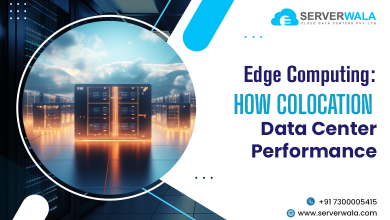AMD EPYC Cloud and Chaos: Breaking speed records, fueling visual effects, and building AI-based solutions
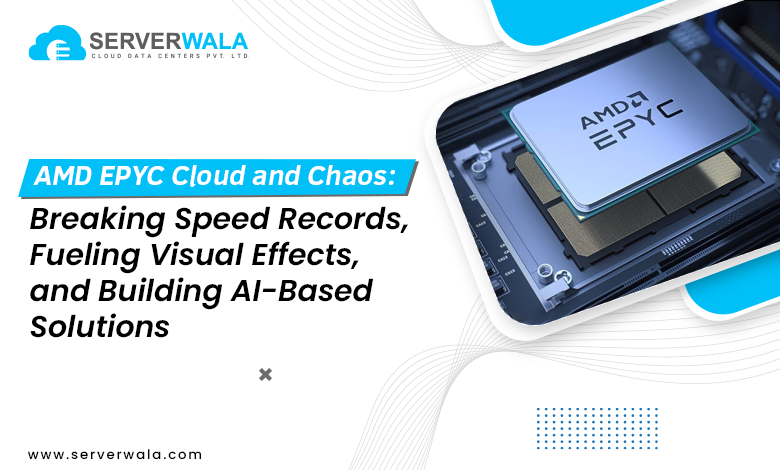
Introduction
AMD EPYC Cloud is redefining cloud computing with its cutting-edge performance and innovative architecture. Built to handle the most demanding workloads, AMD EPYC Cloud combines speed, scalability, and cost-effectiveness to transform industries like media, AI, and cloud-based solutions. Whether you’re a developer, content creator, or enterprise, the power of AMD EPYC 3rd Gen cores offers unparalleled efficiency and speed for your needs.
Definition of AMD EPYC Cloud
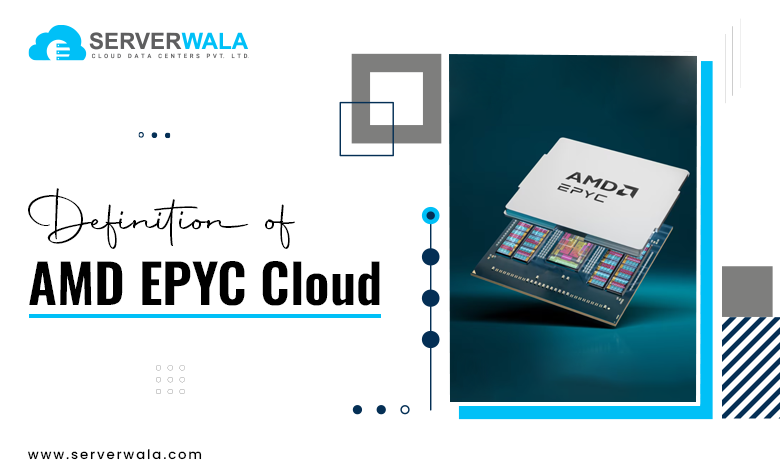
AMD EPYC Cloud refers to cloud services that run on AMD EPYC processors, known for their superior performance in cloud computing. These processors are built with high core counts, allowing them to handle heavy workloads and multi-threaded applications with ease. AMD EPYC 3rd Gen processors, in particular, deliver energy efficiency, making them a viable option for businesses focused on reducing operational expenses.
The most significant feature of AMD EPYC Cloud is its ability to scale functioning while maintaining energy efficiency. This makes it ideal for companies looking to buy AMD EPYC solutions or use AMD cloud computing services. Whether in a public, private, or AMD EPYC hybrid cloud setup, these processors offer advanced security features like memory encryption, which protect sensitive data in cloud servers.
AMD EPYC Cloud is widely adopted in hybrid cloud environments. It seamlessly integrates public and private cloud infrastructures, giving businesses the versatility they require to optimize performance. This combination of flexibility, high performance, and security makes AMD EPYC Cloud a leading option for businesses seeking to intensify their cloud computing abilities.
Breaking Speed Records with AMD EPYC Cloud
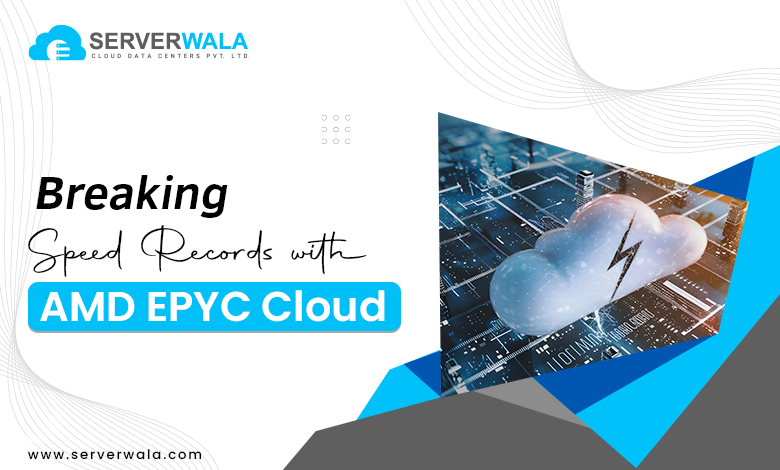
AMD EPYC Cloud is shattering speed records across various industries. Powered by AMD EPYC 3rd Gen processors, which boast up to 64 AMD EPYC cores per processor, the cloud is capable of handling complex workloads faster than ever. These processors offer up to 2.3 times more performance compared to previous generations, drastically reducing the time it takes to complete data-heavy tasks.
- AI and Machine Learning: For AI models, training times are significantly reduced. Large datasets can be processed in hours instead of days, enabling faster innovation.
- Data Processing: In AMD cloud computing environments, data processing speeds are unmatched. High-performance AMD cloud servers can process terabytes of data in record time, enhancing business efficiency.
A prime example of this is in industries like financial services and genomics, where AMD EPYC Cloud enables computations to be completed up to 40% faster than traditional processors. For businesses aiming to enhance performance, buying AMD EPYC-powered solutions provides them with unparalleled speed and reliability, setting new benchmarks for cloud computing.
Fueling Visual Effects: AMD EPYC in Media and Entertainment
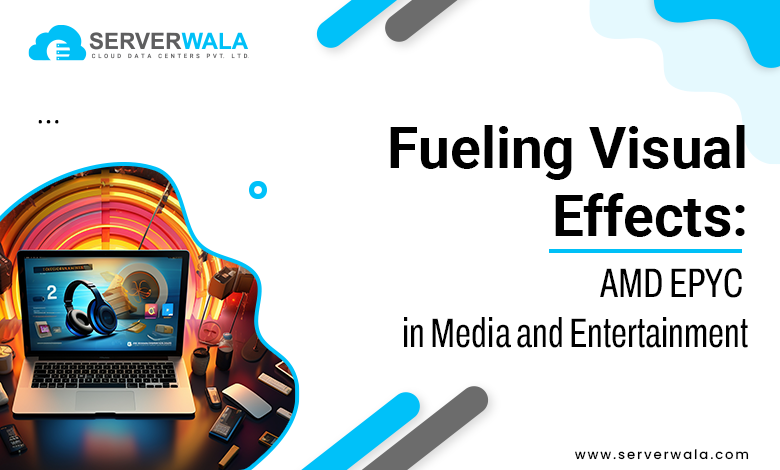
AMD EPYC Cloud is transforming the media and entertainment industry by revolutionizing how visual effects (VFX) are created. With the immense core count of AMD EPYC processors, studios can handle large rendering tasks seamlessly. AMD EPYC 3rd Gen processors with up to 64 cores allow studios to produce high-quality visuals at unprecedented speeds.
- 3D Animation and Rendering: AMD EPYC Cloud significantly speeds up 3D animation and rendering workflows. What previously took days to render can now be finished in just hours, permitting for faster project turnarounds.
- Real-Time Rendering: AMD EPYC hybrid cloud setups are also ideal for real-time rendering in virtual production environments. This allows creators to visualize complex scenes instantly, reducing the time from concept to finished product.
A recent industry case study revealed that AMD EPYC Cloud reduced production times by 35% for a leading animation studio. This efficiency not only saves costs but also fuels creativity, enabling artists to experiment with more complex effects and rendering styles. By leveraging AMD EPYC cores, studios can push the boundaries of what’s visually possible, delivering stunning results in less time and with fewer resources.
The Future of AMD EPYC in Cloud and AI

The future of AMD EPYC Cloud in AI and cloud computing is exceptionally promising. As AI applications become more complicated, the demand for powerful processing increases. AMD EPYC 3rd Gen processors, with up to 64 AMD EPYC cores, are designed to handle these intensive workloads. This positions AMD EPYC Cloud at the forefront of the AI revolution.
- AI and Machine Learning: AMD EPYC processors offer the speed and power needed for AI tasks such as NLP, deep learning, and image recognition. In fact, studies show that AMD EPYC-powered servers reduce AI model training time by up to 40%, accelerating innovation.
- Data Analytics: AMD EPYC Cloud also excels in big data analytics. It allows businesses to process massive amounts of data faster, unlocking insights for better decision-making.
- Hybrid Cloud Solutions: As businesses move toward hybrid cloud environments, AMD EPYC hybrid cloud setups offer the flexibility to seamlessly integrate AI and cloud computing infrastructures. This enables enterprises to run AI models in both public & private clouds, as per their requirements.
With the increasing demand for AI-driven services and solutions, AMD EPYC Cloud is set to play a key role in shaping the future of technology. Businesses that buy AMD EPYC-based servers will stay ahead in the competitive AI landscape.
Features of AMD EPYC in the Cloud
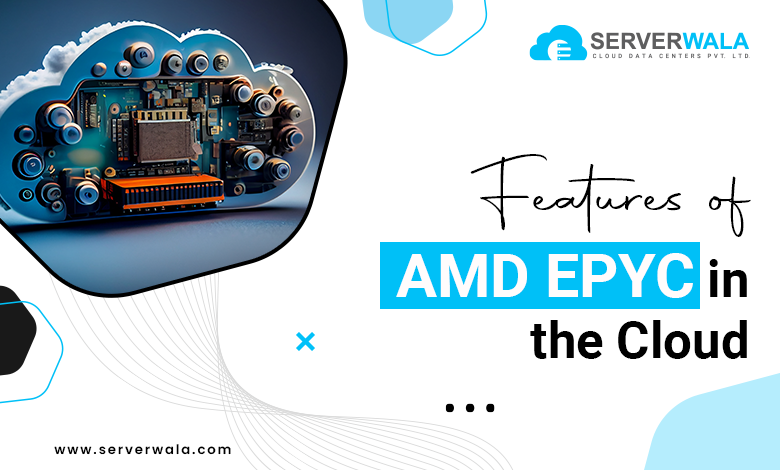
AMD EPYC Cloud offers a range of features that enhance both performance and security, making it ideal for cloud computing environments.
- High Core Count: With up to 64 AMD EPYC cores per processor, AMD EPYC Cloud delivers exceptional performance for multi-threaded applications. This allows workloads like AI processing, data analytics, and cloud-native applications to run smoothly, even under heavy demand.
- Memory Bandwidth: AMD EPYC 3rd Gen processors provide enhanced memory bandwidth, which ensures faster data movement within the system. This feature improves the overall efficiency of AMD cloud servers, leading to better resource utilization and performance.
- Security Features: AMD EPYC Cloud incorporates progressive security features like Secure Memory Encryption and Secure Encrypted Virtualization. These features protect sensitive data, even in shared virtualized environments. The AMD EPYC cost is often justified by the high level of built-in security, reducing the risk of data breaches.
- Energy Efficiency: The power efficiency of AMD EPYC processors also makes them ideal for cloud data centers. Compared to competing solutions, AMD EPYC-powered clouds can reduce energy consumption by up to 30%, leading to lower operational costs.
What is the AMD EPYC Cost?
When considering the AMD EPYC cost, businesses find it offers exceptional value for high-performance computing. While the upfront pricing of AMD EPYC 3rd Gen processors can vary based on configuration, provider, and cloud service options, the long-term advantages far outweigh the beginning investment. The scalability of AMD EPYC Cloud ensures that you can adjust computing resources according to your needs, avoiding unnecessary expenses while optimizing performance.
- Cost Efficiency: AMD EPYC Cloud is designed to handle intense workloads without requiring constant hardware upgrades. Its multi-core architecture permits you to roperate un more applications at the same time, reducing the need for additional infrastructure. This translates to fewer expenses on physical hardware and energy consumption, especially when using Serverwala’s AMD cloud servers, which provide optimal efficiency at competitive pricing.
- Flexible Options: Whether you’re looking to buy AMD EPYC servers or leverage AMD cloud computing services, there are flexible pricing models to suit your budget. Businesses can benefit from hybrid cloud setups, which combine private and public cloud infrastructure, optimizing cost efficiency for diverse workloads. At Serverwala, we offer the best value by providing tailored AMD EPYC hybrid solutions that match both performance needs and budgetary constraints.
Also Read: What is the Role of SAAS in Cloud Computing?
Conclusion
AMD EPYC Cloud is reshaping industries by breaking speed records, powering visual effects, and advancing AI solutions. Its features, from massive core counts to enhanced protection, make it a priority option for businesses seeking to optimize performance in the cloud. With competitive AMD EPYC costs and the flexibility of hybrid cloud solutions, it’s clear that AMD EPYC Cloud will continue to fuel the future of cloud computing and AI.


